Ukraine: Helping children living along the contact line avoid dangers of conflict
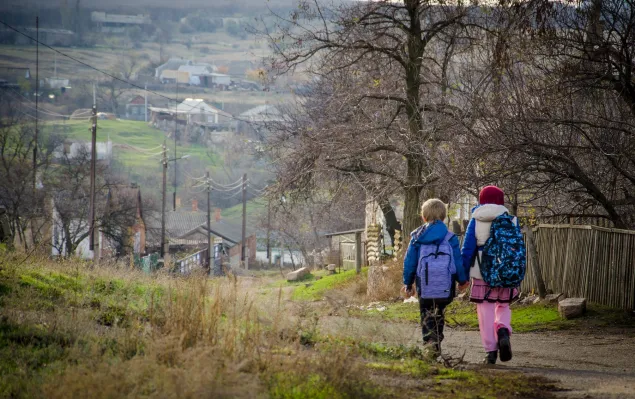
Thousands of children attending schools along the contact line in the Donbas are exposed to risks intrinsic to the conflict. There are dangerous landmines and unexploded ordnance – sometimes, even shelling – on their paths way to and from school in some areas close to the contact line.
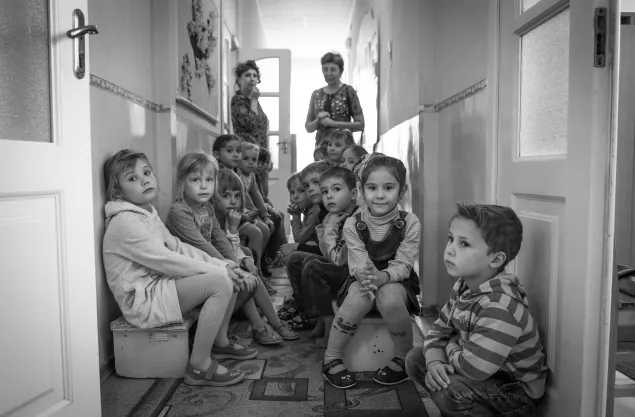
Seeking shelter in the kindergarten of Hranitne, November 2018
Children and teachers in Hranitne, Donetsk region, find shelter in the hallway as explosions are heard on the outskirts of the village.
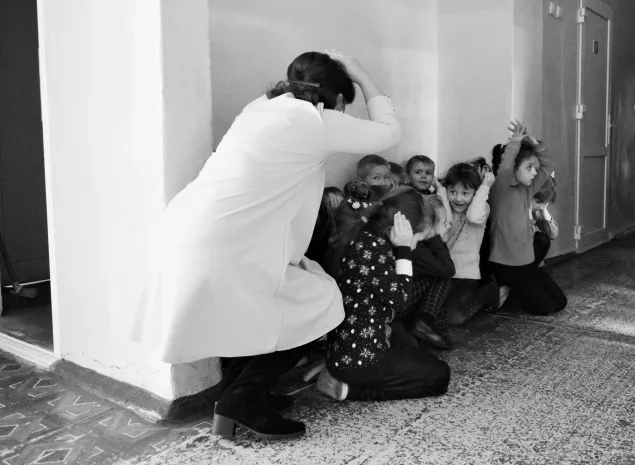
Security drill at a school in the Luhansk region, November 2018
As the hostilities in the Donbas continue, children must be adequately trained to act in case of shelling, which includes identifying the danger, escaping from it and taking shelter in the safest possible place.
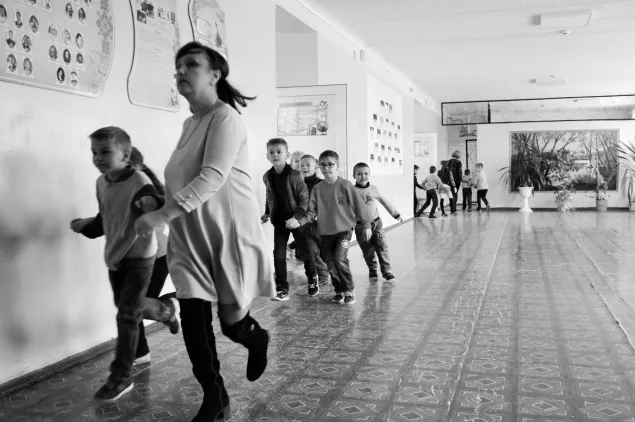
Security drill at a school in Luhansk region, November 2018
Teachers, in addition to standard subjects at school, also must pass one more vital skill to children – how to protect themselves by running to a shelter.
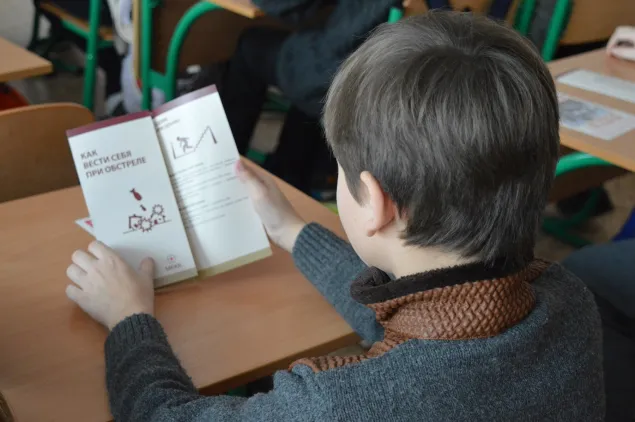
A school boy reading what to do in case of shelling, February 2018
To help children familiarize themselves with the rules of safe behaviour in case of shelling and other emergencies, we distribute print materials with practical guidelines.
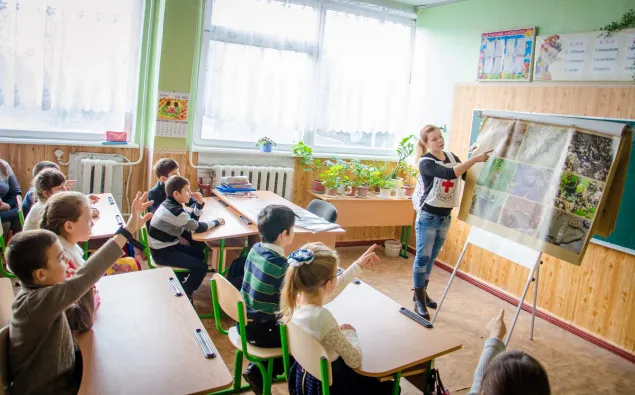
Landmine awareness session in the school of Hranitne, November 2017
Children living along the contact line need to know the rules of safe behaviour. For example, what to do if they encounter unknown objects, like mines and unexploded ordnances. Our colleagues help them to identify dangers and avoid the consequences.
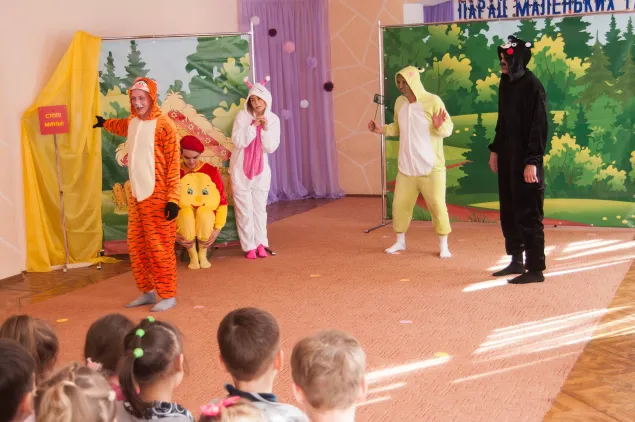
Theatre play at a kindergarten to explain mine risks, April 2018
We invite theatre actors to engage with preschool children through basic messages and conversation. They enact simple and familiar roles helping them understand the danger of landmines.
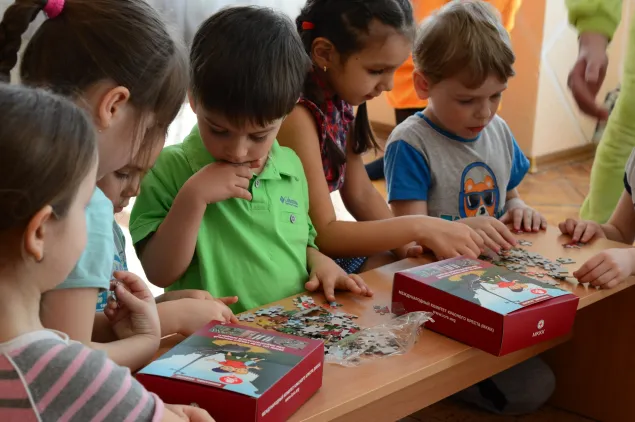
Children putting together mine risk puzzle, April 2018
To make mine risk education more engaging, we developed a puzzle which conveys this message: When you see an unknown device, neither move toward it nor touch it.
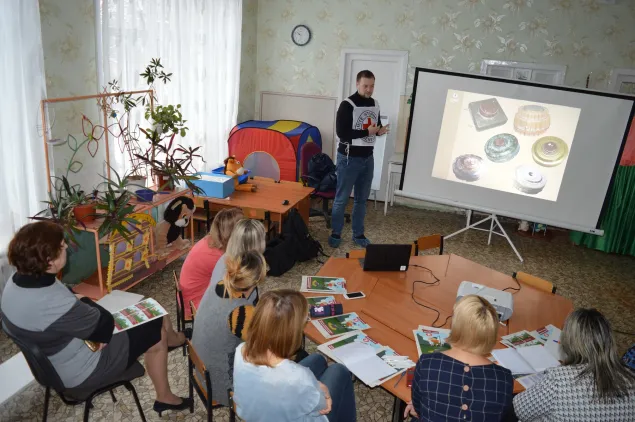
Mine risks session for kindergarten staff, November 2018
It is not just children who need to be reminded about the danger of mines and unexploded ordnances. We regularly engage with teachers to explain to them the risks explosive remnants of war pose. We train them on how to respond in emergency situations and to be ready to provide guidance to the children they supervise.
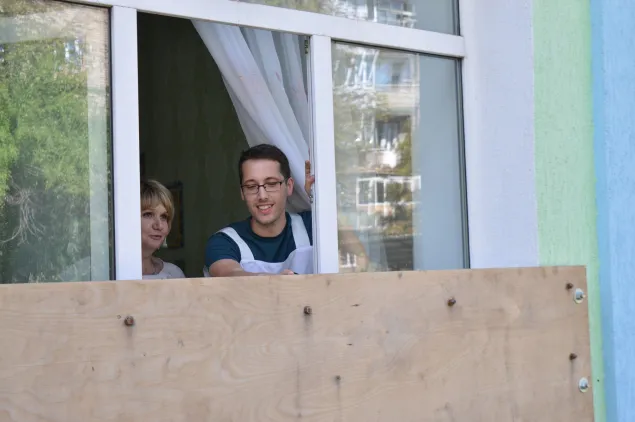
Sandwich panels installed in Popasna kindergarten, August 2018
To make schools and kindergartens safer, we help to install sandwich panels to prevent windows from breaking from fragments of exploded shells. We also provide educational institutions with basic supplies needed to equip their shelters and safe areas.
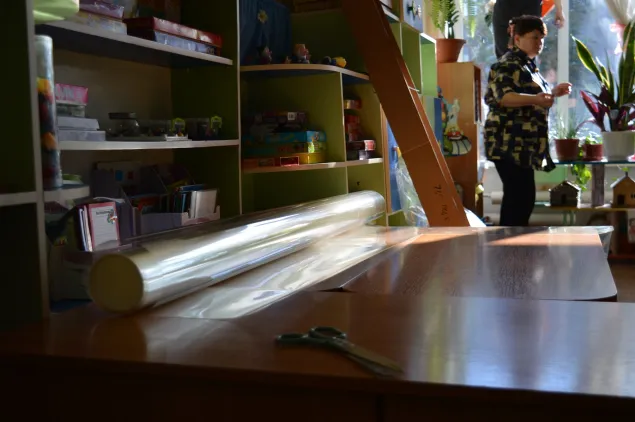
Protective film for windows of educational institutions, November 2018
We distribute an anti-blast film for windows to the kindergartens and schools located in the conflict area. If window panes are broken because of a blast wave, the protective film will hold the glass shards together and help prevent injuries.
Thousands of children attending schools along the contact line in the Donbas are exposed to risks intrinsic to the conflict. There are dangerous landmines and unexploded ordnance – sometimes, even shelling – on their paths way to and from school in some areas close to the contact line.



